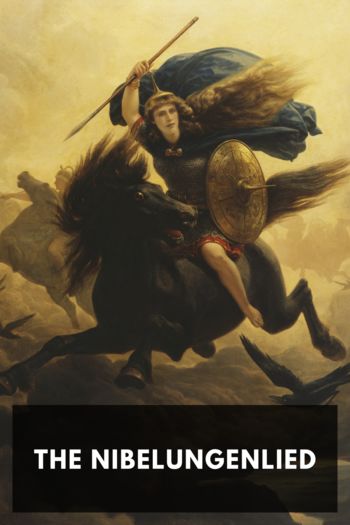The Trials of Radclyffe Hall, Diana Souhami [best sales books of all time .TXT] 📗

- Author: Diana Souhami
Book online «The Trials of Radclyffe Hall, Diana Souhami [best sales books of all time .TXT] 📗». Author Diana Souhami
It was not for long, given the summer solstice, but she inspired a poem from him called ‘Butterflies’. Mabel had, he claimed, found no one to satisfy her ‘nameless cravings’ until Blunt crept into her bed that night:
Where is the noon can match with thy sunrise?
Whose is the heart shall win thy constancy?
Thou with thy foolish loves, mad butterflies,
What dost thou ask of my sad heart and me?
The answer was, not much. But foolish loves and open doors were more fun than being with George.
She called him Dear Old George and Foxy but did not pretend to find him other than dull. He retired from the Bengal civil service in 1882, brought her and Cara to London, ensconced them in a house at 3 Ralston Street, in a leafy part of Chelsea, and spent much time with fellow old colonials at the Oriental Club in Hanover Square. At home he collected recipes which he pasted into a book and he was particularly fond of acrostics. He ‘spent many happy hours working them out’.
Mabel disliked acrostics intensely. She preferred the Count de Mirafiore, son of the first King of Italy Victor Emmanuel II, who wooed her with furs, boas and jewels. He gave her an emerald ring that had once belonged to the King of Serbia and a brooch of two diamond tortoises, which she called Sophie and Edward.
London offered wider opportunities than Simla. Mabel played the piano and guitar, coached her voice, sang at salons and private functions and was praised as one of the best amateur lieder singers of her day. The composers Fauré, Delius, Elgar and Percy Grainger wrote songs for her. John Singer Sargent did an oil portrait of her as she sang at full throttle. John Koopman and Edward Poynter painted her, too, and editors of the society columns referred to her as ‘the April Grandmother’.
She gave singing lessons, published her own compositions and banked modest royalties from Boosey of Bond Street. Her best known song, ‘The Queen’s Last Ride’, was inspired by the funeral of Queen Victoria in February 1901. It was sung on the first anniversary of Victoria’s death by a former student of Alberto Visetti’s, Louise Kirkby-Lunn, at the Queen’s Hall in a concert conducted by Henry Wood. Mabel’s old flame Edward, now the King, presided.
By 1906 Mabel was fifty and plump with a taste for mauve silk housecoats, lace frocks and long earrings. Her scent was specially made from verbena and white lilac by J & E Atkinson of Old Bond Street. She wore stays of heavy pink brocade, was particular for her stomach to appear flat and she always sat erectly. Her once-luxuriant hair was flecked with grey. She tried to henna it, but ‘with poor results’. She read through gold or platinum lorgnettes and was slightly deaf.
She slept with a pillow in the small of her back, called her hot water bottles Jones and Charlie, the gold eagle lamp holder above her bed Walter, and a large pear-shaped piece of quartz of which she was particularly fond, The Plump of Peking. She always got up late. She would moue, pout her underlip, say in a little-girl voice, ‘Darling I feel sneevish’, and give a sidelong glance. She had excessive pairs of shoes, was afraid of bees and wasps, repeated favourite anecdotes and always said ‘Bless you’ when parting.
Her daughter Cara became extravagantly unconventional. Under the nom de brosse Rognons de la Flêche, she painted works of sexual surrealism – mermaids on a fishmonger’s slab, nudes in shoes, with whips. She believed in occult forces and did supernatural things with ouija boards, aromas, a rosary and a motor horn. Her husband, Austin Harris, Vice-Chairman of Lloyds Bank and an art collector, was said to weep when he saw the household accounts and to economize by turning off lights even when people were in the room. Cara, not on speaking terms with him, had a live-in lover, Frank Romer, an orthopaedic surgeon. Her children called him Nunkie. Stone deaf in one ear, she used an ear trumpet – a concession to disability Mabel deplored. She kept an orange and blue macaw, which spiced the marital silences with, ‘Fuck off you silly bitch.’ And she made and scripted ambitious home movies. The Sun Never Sets: An Epic of Endurance, filmed on the Isle of Wight, was set in the African jungle. It featured friends in pith hats standing over a tigerskin rug with shotguns. The cat filmed in close-up starred as the lion. Treason’s Bargain had five acts and 106 scenes. The credits thanked Sibyl, Lady Colefax for providing the elephant, but there was no elephant in it.
Toupie Lowther lost the 1906 Homburg tennis final 6–4, 6–4 to Dorothea Chambers (seven times winner of Wimbledon). On the terrace of the Savoy, Mabel talked with her and Miss Douglas, Toupie’s friend of the moment, and with Marguerite and Dolly Diehl. ‘Toupie is always very well groomed’, Mabel wrote to Cara who lived in Aspenden Hall, Buntingford, Hertfordshire. She thought them all infinitely amusing and not in the least sporkish.
Marguerite discerned in Mabel the motherly recompense she craved. She spoke of her ‘natural domination which it never occurred to me to dispute’, she elevated her judgement saying she had irreproachable literary taste and was unsurpassed as a critic. Mabel had a languid ease, an accepting indolence and nothing of the rebarbative manner of Mrs Visetti. Here was ‘a woman whom one would long to protect while coming to in turn for protection’.
She showed a ‘calm unshakeable belief? in Marguerite’s literary future. Back





Comments (0)